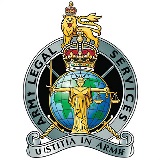This is an exciting and rare opportunity to work directly with former senior judges to assist their oversight of some of the most cutting-edge and sensitive issues facing law enforcement and the intelligence services.
If you feel ready for a new challenge and want to join a small and friendly organisation where you can make a big impact, then we would be delighted to hear from you.
The Organisation
The Investigatory Powers Act 2016 established the office of the Investigatory Powers Commissioner (‘IPC’) and provides for the appointment of Judicial Commissioners (JCs) to approve and oversee the use of investigatory powers by public authorities. The current IPC is Sir Brian Leveson.
The IPC and JCs have the important function of balancing the public interest and the rights of the individual independently of Government, in particular reviewing whether public authorities’ interference with those rights is justifiable.
The IPC and JCs are supported by the Investigatory Powers Commissioner’s Office (IPCO), an independent arm’s length body of the Home Office that provides oversight and authorisation of the use of investigatory powers by intelligence agencies, police forces and other public authorities. IPCO has offices in London, Manchester and Birmingham and is made up of around 150 civil servants headed by a chief executive. Staff include communications data authorising officers, inspectors, lawyers, policy officials and administrators.
IPCO is committed to creating an increasingly diverse and inclusive workplace. Our people are our greatest asset and so we aim to foster a safe environment where diversity of thought is welcomed, work-life balance is valued and opportunity for growth is encouraged.
Job description
The Post
The successful candidate will provide legal advice to the IPC, JCs, CEO, inspectors, policy officials and authorising officers. The postholder will lead on communications data matters, working closely with JCs, authorising officers and inspectors, but will also be expected to develop a good understanding of the full range of work that comes through the office and advise JCs on any application for investigatory powers. Communications data concerns the ‘who’, ‘where’, ‘when’ and ‘how’ of a communication, but not its content – it is often referred to as ‘metadata’. It is an extremely important investigatory power that features in most law enforcement investigations.
The postholder will report to the Head of Legal, who works from London. The postholder will need regular access to secure office-based systems and so will need to be based in London. The postholder will be required to undertake occasional travel throughout the UK to support colleagues on inspections or in meetings with stakeholders and public authority representatives. More frequent travel will also be necessary to IPCO’s Birmingham and Manchester offices, where IPCO’s communications data authorising officers are based. There may also be the occasional opportunity for international travel to represent IPCO at conferences and meetings with international counterparts.
Although communications data is a technically complex area, no prior knowledge of communications data is expected or required; full training and on-the-job support will be given. However, you will need to be sufficiently experienced in practicing public law to advise and maintain the confidence of the Judicial Commissioners (all of whom are retired senior judges), inspectors and authorising officers. You will need to be able to challenge senior decision makers in public authorities, as well as wider stakeholder groups on contentious matters or where there is significant internal or external disagreement.
You must have excellent written and oral communication skills and demonstrate an ability to communicate key messages clearly and succinctly to a variety of audiences.
You will need excellent interpersonal skills and be able to work with high levels of tact, diplomacy and political awareness. You will need to be able to work collaboratively across IPCO’s various teams and build and maintain effective working relationships with colleagues and counterparts at all levels.
You must be able to respect sensitive information, confidentiality and privacy.
The post does not have line management responsibilities.
We are committed to flexible working but there will be a requirement to attend the office regularly (at least three days a week, depending upon business need) to access classified information in a secure environment. Whilst some home working will be possible, this role might not be suitable for all flexible working options. We are happy to discuss possible arrangements with potential candidates.
The role is only available on a full-time basis, due to business needs. It is your responsibility to ensure that full time working is suitable for you before accepting the offer
Applications are welcome on lateral transfer at Grade 7 (or departmental equivalent) or on promotion.
Person specification
Key Responsibilities
The exact responsibilities will vary according to demand, but in summary, the postholder will be responsible for:
- Providing legal advice on the functions of the IPC – in particular the use of all investigatory powers which are subject to IPC oversight;
- Providing legal advice on warrants and authorisations (particularly where novel or contentious matters might arise and on which further advice, guidance or information may be sought);
- Researching and disseminating internally relevant case law and judgments;
- Commissioning external legal services, including instructing IPCO’s external standing counsel;
- Developing and managing guidance to public authorities;
- Managing IPC contributions to consultations regarding new legislation, codes of practice and other areas (e.g. Law Commission projects, public inquiries etc.);
- Engagement with the Investigatory Powers Tribunal (including managing any requests for assistance it makes) and with the courts;
- Assessing reports of errors and managing the process of notifications to individuals adversely affected by serious ‘relevant errors’;
- Instructing the Technology Advisory Panel to provide advice to the IPC; and
- Providing advice on wider corporate matters (such as data protection issues) when required.
Minimum eligibility criteria
Professional qualifications
Applicants should have a minimum of a 2:1 honours degree in their first degree (in any subject). Where an applicant holds an overseas degree qualification this should be equivalent to a 2.1 degree. IPCO will consider applicants who do not have a 2.1 degree but only where satisfactory evidence of equivalent high level academic and/or professional achievement can be provided (e.g. via relevant experience and results achieved for the Graduate Diploma in Law (GDL)/CPE, Legal Practice Course (LPC), Bar Professional Training Course (BPTC) or similar).
Applicants must be qualified to practise as a Solicitor, Barrister or Chartered Legal Executive in England and Wales (or will be qualified 3 months from application date). You must have completed a training contract/solicitor’s qualifying examination/pupillage/qualifying employment, or have been exempted from this by the Solicitor’s Regulation Authority, the Bar Standards Board or CILEx.
Professional entry criteria for Chartered Legal Executives (i.e. Fellows): Chartered Legal Executives are eligible to apply where (i) a Qualifying Law Degree (QLD) is held; or (ii) the Graduate Diploma in Law (GDL)/CPE has been completed; or (iii) where exams have been passed (i.e. a score of 50% or above achieved), at CILEx Level 6*, in all of the following seven foundation subjects in law:
- Contract Law
- Criminal Law
- Equity and Trusts Law
- European Union Law
- Land Law
- Public Law
- Law of Tort
*Note: There are specific requirements relating to academic achievement in the CILEx Level 6 exams where these are being used to demonstrate 2.1 degree equivalence as set out below.
Chartered Legal Executives should note that GLD will be willing to accept an, overall, average score of 65% or above across exams passed in the seven foundation subjects in law (where studied at CILEx Level 6) as demonstrating 2.1 degree equivalence (where a 2.1 degree is not held).
Desirable Criteria
- an understanding of one or more of the significant pieces of legislation (Investigatory Powers Act 2016, Regulation of Investigatory Powers Act 2000, Regulation of Investigatory Powers (Scotland) Act 2000, Police Act 1997 and Intelligence Services Act 1994);
- knowledge of the practical application of investigatory powers and the operational activities of law enforcement and the security and intelligence agencies;
- familiarity of applying the law to technology, particularly in the cyber or telecommunications context; and
- some knowledge of international law
Security
This role requires developed vetting.
This post also requires British nationality (some dual nationals may be ineligible). Satisfactory completion of additional security checks (that are separate from developed vetting) is required as part of the recruitment process. As the postholder will have access to very sensitive information, they will be subject to limitations on travelling to a small number of countries. Applications from candidates with close connections to certain countries may take considerably longer to process or, in some cases, result in a withdrawal of an offer of employment. Further details will be provided at the conditional offer stage. Employment will be conditional upon satisfactory completion of all security checks.
Qualifications
Applicants must be qualified to practise as a Solicitor, Barrister or Chartered Legal Executive in England and Wales.
Behaviours
We'll assess you against these behaviours during the selection process:
- Making Effective Decisions
- Communicating and Influencing
- Managing a Quality Service
- Working Together
We only ask for evidence of these behaviours on your application form:
- Making Effective Decisions
- Communicating and Influencing
Technical skills
We'll assess you against these technical skills during the selection process:
- Technical Legal Skills and Motivational Fit
Benefits
Alongside your salary of £60,300, Home Office contributes £17,468 towards you being a member of the Civil Service Defined Benefit Pension scheme. Find out what benefits a Civil Service Pension provides.
- Learning and development tailored to your role
- An environment with flexible working options
- A culture encouraging inclusion and diversity
- A Civil Service pension with an employer contribution of 28.97%
Things you need to know
Selection process details
This vacancy is using Success Profiles (opens in a new window), and will assess your Behaviours, Experience and Technical skills.
Selection process details
Candidates will be asked to submit a CV and statement of suitability for the role (1000 words max). Your statement of suitability should demonstrate how you meet the following essential criteria: Technical Legal Skills (limit of 500 words), Motivational Fit (500 words),
You will also be asked to demonstrate the behaviours ‘Making Effective Decisions’ and ‘Communicating and Influencing’ (250 words each).
Your communication skills will also be assessed from your statement, but you will not be asked for specific evidence of this during the application stage. You will also be asked to confirm that you meet the minimum eligibility criteria (see above). Selection for interview will be based on an assessment of a candidate’s CV and statement of suitability.
Candidates who are selected for interview will be provided an online exercise to test ‘Technical Legal Skills’ under timed conditions. You will be advised of a clear deadline for submitting your response. This allows you to respond to a legal question in the comfort of your own home and at a time convenient to you. Your written response will be assessed ahead of your interview, you may be asked some follow up questions on it during your interview.
At interview candidates will be assessed using technical, motivational fit and behaviour questions.
Evidence of the desirable criteria listed will be considered in the event of a tied score.
At application stage, you will be assessed on the following Essential Criteria:
Technical Legal Skills:
- Sound understanding of public law, including human rights law.
- Sound legal analysis, judgment and appreciation of legal risk, to produce timely and fit for purpose advice.
- The ability to think strategically and creatively, see legal issues in their wider context and advise accordingly.
- Ability to communicate clearly and concisely
Motivational Fit:
We need to know how well our requirements and offerings match your aspirations. In your application, please outline:
- an understanding of the role of lawyers in an arm’s length body such as IPCO; and
- why you are motivated to apply for this role and how you feel you might contribute effectively to a role with IPCO.
Behaviours:
We need you to demonstrate evidence of the following:
- Making Effective Decisions
- Communicating and Influencing
At interview stage, you will be assessed on the following criteria:
Technical professional skills, Motivational Fit, and on the following behaviours:
- Making Effective Decisions
- Communicating and Influencing
- Managing a Quality Service
Working Together
We will also take account of the desirable criteria listed above in the event of a tied score.
We emphasise that the above is simply desirable criteria and NOT essential: it will not be relevant unless there is a tied score. If you have a sound knowledge of public law and meet the essential criteria, we would love to hear from you.
For further information about Civil Service recruitment processes and Success profiles, please visit: https://www.gov.uk/government/publications/success-profiles
Sift and interview dates
Sifting is expected to take place week commencing 27th October 2025.
Assessments are expected to take place week commencing 3rd November 2025.
Interviews are expected to take place week commencing 10th November 2025.
In person interviews are to be conducted in central London. Further details will be given to those invited to interview.
This timeline may change subject to business need.
Further Information
In order to process applications without delay, we will be sending a Criminal Record Check to Disclosure and Barring Service on your behalf. However, we recognise in exceptional circumstances some candidates will want to send their completed forms direct.
If you will be doing this, please advise Government Recruitment Service of your intention by emailing Pre-EmploymentChecks.grs@cabinetoffice.gov.uk stating the job reference number in the subject heading.
Reasonable Adjustments
If a person with disabilities is at a substantial disadvantage compared to a non-disabled person, we have a duty to make reasonable changes to our processes.
If you need a change to be made so that you can make your application, you should:
- Contact Government Recruitment Service via HOrecruitment.grs@cabinetoffice.gov.uk as soon as possible before the closing date to discuss your needs
- Complete the “Assistance Required” section in the “Additional Requirements” page of your application form to tell us what changes or help you might need further on in the recruitment process. For instance, you may need wheelchair access at interview, or if you're deaf, a language service professional
If you are experiencing accessibility problems with any attachments on this advert, please contact the email address in the ‘Contact point for applicants’ section.
Feedback
Feedback will only be provided if you attend an interview or assessment.
Security
Successful candidates must undergo a criminal record check.
Successful candidates must meet the security requirements before they can be appointed. The level of security needed is developed vetting (opens in a new window).
See our vetting charter (opens in a new window).
People working with government assets must complete baseline personnel security standard (opens in new window) checks.
Nationality requirements
Open to UK nationals only.
Working for the Civil Service
The Civil Service Code (opens in a new window) sets out the standards of behaviour expected of civil servants.
We recruit by merit on the basis of fair and open competition, as outlined in the Civil Service Commission's recruitment principles (opens in a new window).
The Civil Service embraces diversity and promotes equal opportunities. As such, we run a Disability Confident Scheme (DCS) for candidates with disabilities who meet the minimum selection criteria.
The Civil Service also offers a Redeployment Interview Scheme to civil servants who are at risk of redundancy, and who meet the minimum requirements for the advertised vacancy.
Diversity and Inclusion
The Civil Service is committed to attract, retain and invest in talent wherever it is found. To learn more please see the Civil Service People Plan (opens in a new window) and the Civil Service Diversity and Inclusion Strategy (opens in a new window).
Apply and further information
This vacancy is part of the Great Place to Work for Veterans (opens in a new window) initiative.
Once this job has closed, the job advert will no longer be available. You may want to save a copy for your records.
Contact point for applicants
Job contact :
- Name :IPCO Recruitment
- Email :recruitment@ipco.org.uk
Recruitment team
- Email :HOrecruitment.grs@cabinetoffice.gov.uk
Further information
If you feel that your application has not been treated in accordance with the Civil Service recruitment principles and you wish to make a complaint, then contact the Government Recruitment Service via HOrecruitment.grs@cabinetoffice.gov.uk. If you are not satisfied with the response that you receive, then you can contact the Civil Service Commission.
TO APPLY CLICK HERE










